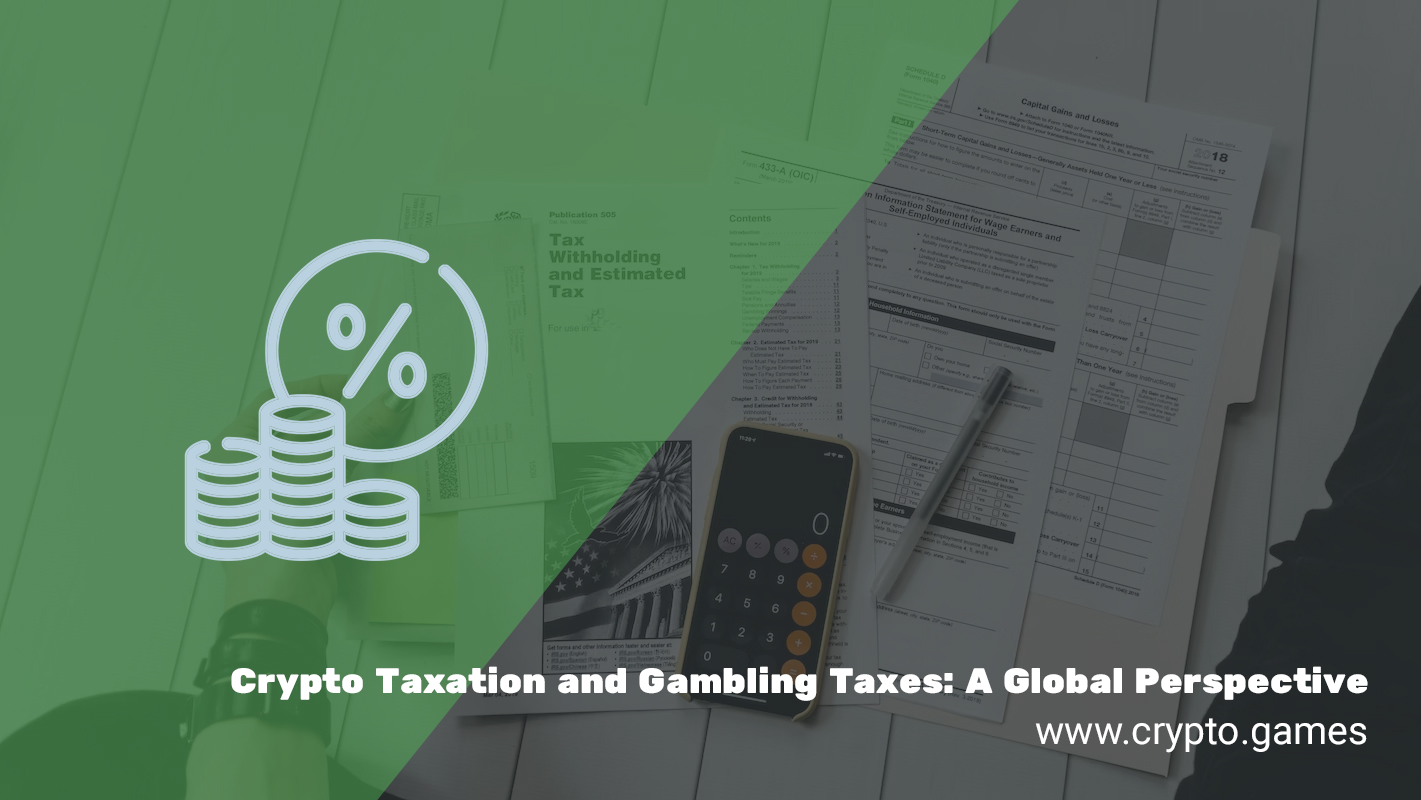Cryptocurrencies have gained significant popularity in recent years, not only as investment assets but also as a means of transaction in various industries. One particular area where cryptocurrencies have made an impact is online gambling.
The intersection of cryptocurrencies and taxation is a complex matter, with regulations varying from one jurisdiction to another. In this article, we explore the tax implications of cryptocurrencies in the context of gambling in different countries, including Russia, Brazil, Switzerland, Norway, the United Arab Emirates, Argentina, and Singapore.
United States
In the United States, the Internal Revenue Service (IRS) treats cryptocurrencies as property. When it comes to gambling, any winnings obtained through crypto gambling are considered taxable income. This means that if you win cryptocurrencies through gambling, you must report those winnings as part of your taxable income. Additionally, if you sell or exchange those cryptocurrencies for fiat currency, capital gains tax may apply, depending on the holding period.
United Kingdom
In the United Kingdom, cryptocurrencies are viewed as assets, and their tax treatment is similar to that of other investments. When it comes to gambling, any winnings obtained through crypto gambling may be subject to capital gains tax if the total gains exceed the annual exempt amount. However, it's worth noting that gambling itself is generally tax-free in the UK, regardless of whether traditional currency or cryptocurrencies are used.
European Union
Within the European Union, the taxation of cryptocurrencies and gambling can vary between member states. In countries like Germany and France, cryptocurrencies are generally subject to capital gains tax. Therefore, any gains from gambling with cryptocurrencies may be subject to taxation. However, some EU countries have specific regulations that exempt gambling from taxation, regardless of the currency used. It's important to consult the specific regulations of each country to determine the tax implications accurately.
Switzerland
Switzerland is often regarded as a global hub for cryptocurrencies and blockchain technology. The country has established a clear legal framework for cryptocurrencies, offering a favorable environment for startups and businesses in the crypto space. The Swiss government has implemented regulations that provide clarity on the taxation and treatment of cryptocurrencies. Additionally, the city of Zug, known as "Crypto Valley," has attracted numerous blockchain companies.
Norway
In Norway, cryptocurrencies are classified as assets, and they are subject to capital gains tax. Gambling winnings, whether obtained through traditional currency or cryptocurrencies, are generally tax-free in Norway. However, professional gamblers who consistently generate substantial winnings may be subject to income tax on their gambling activities, including those involving cryptocurrencies. It's advisable to consult with tax authorities or professionals for accurate guidance based on individual circumstances.
Argentina
In Argentina, cryptocurrencies are not considered legal tender, but they are not explicitly prohibited. The tax treatment of cryptocurrencies is complex, and the Argentine tax authorities have issued guidelines to address their taxation. Cryptocurrencies are subject to income tax or capital gains tax, depending on the type of activity and the holding period. Regarding gambling, Argentina has restrictions on online gambling activities. The tax implications of crypto gambling in Argentina can vary based on the specific regulations and interpretations by tax authorities.
Singapore
Singapore has taken a progressive stance toward cryptocurrencies. The country has developed a robust regulatory framework, ensuring investor protection while encouraging innovation. Singapore's tax authority, the Inland Revenue Authority of Singapore (IRAS), has provided clear guidelines on the tax treatment of cryptocurrencies, making it attractive for businesses and individuals in the crypto industry. In Singapore, cryptocurrency transactions, including gambling winnings obtained through crypto gambling, are generally not subject to income tax. However, if an individual's crypto activities constitute a trade, they may be liable for income tax. It's advisable to consult with tax professionals or refer to the IRAS guidelines for specific guidance on crypto taxation in Singapore.
Conclusion
Tax regulations surrounding cryptocurrencies and gambling vary from one jurisdiction to another. The treatment of cryptocurrencies as assets or currencies, the classification of gambling winnings, and the applicability of capital gains tax can differ significantly. It is imperative for individuals involved in crypto gambling to understand and comply with the tax regulations in their respective countries. Consulting with tax professionals and referring to official government sources are crucial steps to ensure accurate reporting and compliance with tax obligations. As the crypto landscape continues to evolve, staying informed about tax regulations becomes increasingly important for individuals engaging in cryptocurrency-related activities.
Disclaimer: This article provides general information and should not be considered as legal or tax advice. It is advisable to consult with a tax professional or refer to official government sources for specific guidance and the most up-to-date information regarding crypto taxation and gambling taxes in your jurisdiction.

